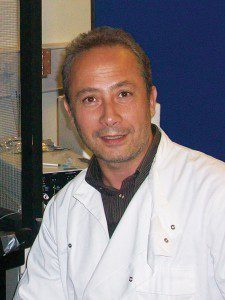Prof. Giuseppe Di Giovanni
Brain illnesses are among the most important causes of death and disability worldwide. While 0.4 million people die from breast cancer every year, 1 million commit suicide. Add death due to drugs of abuse, Alzheimer’s, Parkinson’s and other neurodegenerative disorders, and the numbers skyrocket. Yet, despite the high numbers, social awareness of brain research is low.

Mental illness is still perceived as an indulgence, a sign of weakness or punishment. For patients, it carries powerful negative attributes in all of their social relations. The situation must be improved. Neuroscientists need to work together with the media and educators to raise awareness among the general population and politicians. Mental illnesses are just as important as other physical illnesses, only much more complex, due to the limited understanding of our brain.
In order to improve mental health, research needs support. Funding is needed from national and international authorities for both basic and clinical research, patient care, and to support patients’ families. Brain research is important: a message that needs to be understood by all societal sectors including government, academia, industry, and the general public.
In Malta, biomedical and in particular neuroscience research is in a period of growth. Thanks to a number of talented people, the number of research groups focusing on brain function and disease has increased. This growth has pushed Maltese groups into the international scientific spotlight, which helps provide our students with both local training and work. Malta still has a long way to go. Research funding is limited and the government body responsible for research policy, the Malta Council for Science & Technology (MCST) through the National R&I Programme, focuses on academic research done in partnership with industry. Unfortunately, the number of industrial partners interested in neuroscience is limited. Like other European and worldwide funding organisations, Malta needs to provide financial support for basic research. Ideally, the programme grants will be between 3 to 5 years, which allows for the initial scientific discoveries to be developed into new technologies. These developments can sometimes take much longer, but science can only contribute to the economy when it has solid basic discoveries. Science awareness in Malta is poor.
“Mental illnesses are just as important as other physical illnesses”
Neuroscientists at the University of Malta are fighting on all fronts. My colleagues and I are trying to improve our understanding of devastating pathologies that underlie epilepsy, drug addiction, stroke, Alzheimer’s and Parkinson’s disease and other movement disorders. Outside the lab, we are constantly searching for new funds and European grants to continue this research and I am helping to connect my colleagues to Europe by informing them about available funds. To communicate recent discoveries in neuroscience, I have started Neuroscience Days at the University of Malta: day-long seminars dedicated to neuroscience. This year, the third Neuroscience Day will be part of the VIII Malta Medical School Conference 2012. As members of the Malta Chamber of Scientists, we also communicate the workings of the brain to the general public. But all our efforts are in vain without you. We need your help to unlock the mysteries of the brain.
The author is an associate Professor at the Faculty of Medicine & Surgery, an honorary senior lecturer at the University of Cardiff and the Maltese representative for the Biomedicine and Molecular Biosciences domain at COST. He is also the Editor-in-Chief of the Malta Chamber of Scientists journal called Xjenza (http://www.xjenza.com), a peer-reviewed journal on all branches of science, technology and humanities. Xjenza’s main aim is to offer training in scientific writing for young researchers and publish studies by established academics. If you would like to know more contact Prof. Di Giovanni directly at
giuseppe.digiovanni@um.edu.mt





Comments are closed for this article!